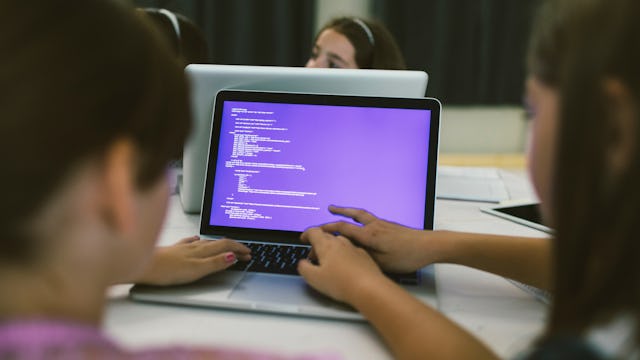An 11-Year-Old Was Able To Hack Into Mock Election Boards, So That's Cool

The first kid to do so did it in under 10 minutes
Las Vegas was home to the world’s largest hacking convention, DEFCON 26, over the weekend and as part of the event, organizers opened their doors to kids to try their hands at breaking into swing state mock election board websites. And guess what? They seemed to have no trouble at all.
Thousands of adult hackers attend the annual convention, but this year a group of 50 children between the ages of eight and 16 attempted to hack replica websites used to vote in presidential battleground states. An 11-year-old boy, Emmett Brewer, was the first to hack into the Florida state election website and change voting results — and he did it in under ten minutes, PBS reports.
“Unfortunately, it’s so easy to hack the websites that report election results that we couldn’t do it in this room because [adult hackers] would find it boring,” Jake Braun, one of the event’s organizers and a former White House official told CNN.
So they opened the “DEFCON Voting Machine Hacking Village” to the kid hackers instead and learned just how easily they could change election results. Though Brewer was the first to get in, an 11-year-old girl also managed to hack into the same Florida replica site, tripling the number of votes found there. Others were able to tamper with voting results, changing candidates names to things like “Bob Da Builder” and “Richard Nixon’s Head,” which is as hilarious as it is frightening.
The concern is that if state election boards were targeted like this, the information obtained (voter information or voting systems) could be disseminated on social media leading to chaos and confusion that could undermine the integrity fo election results.
As concerns over the upcoming elections weigh heavily on voter’s minds after the Russian hacks in 2016, the results of this hacking challenge are eye-opening. But not all feel the DEFCON challenges are any indication of what would really happen in an actual election.
“It would be extremely difficult to replicate these systems since many states utilize unique networks and custom-built databases with new and updated security protocols,” the National Association of Secretaries of State (NASS) said in a statement.
But Braun said it absolutely would be possible for hackers to access the machines either physically or virtually. “It’s not like these machines are kept in Fort Knox,” he said.